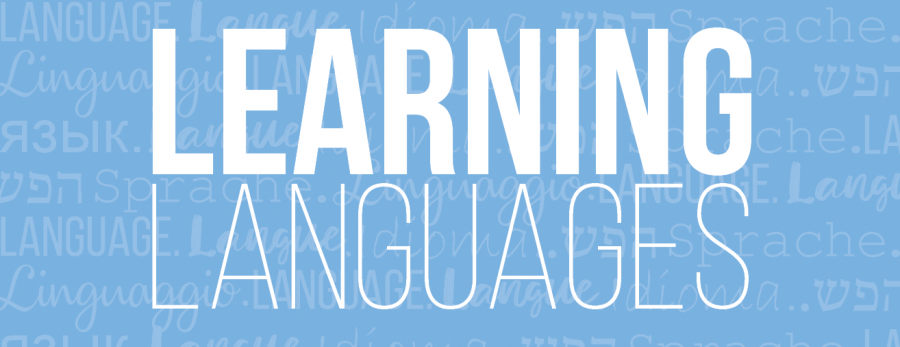Learning languages: foreign language TAs
November 8, 2019
What is a TA?
Like many academic institutions, the University offers opportunities for students to gain outside help from peers for a subject in which they may be struggling. Additionally, some peers are offered valuable teaching experience through the Teaching Assistant (TA) positions. In addition to attending regular class meetings for a topic, a teaching assistant offers office hours outside of that class for students to seek extra help. Also, teaching assistants lead a common hour period, or recitation, which is additional time for students to review the material covered by the professor in class.
Languages at the University
While all undergraduate courses at the University are taught by professors, several departments make use of teaching assistants. Within the language departments, some of these teaching assistants are even native speakers of the language they teach for. At the University, these foreign language teaching assistants (FLTA) work with the Department of East Asian Studies (Chinese and Japanese), the Department of Languages, Cultures & Linguistics (Arabic, French, German, Italian, Modern Hebrew and Russian) and the Department of Spanish (Spanish).
In addition to the six modern languages it offers, the Department of Languages, Cultures & Linguistics also offers American Sign Language and linguistics. Collectively, the department aims to engage students in their respective global communities, help them foster their own insight about language and culture, and enhance their marketability for the career world.
Across the board, these different language and culture departments have 15 international teaching assistants working with them, covering eight different languages.
Laura Nicolle
Laura Nicolle is a teaching assistant for French at the University. As a French citizen, Nicolle has been employed to teach throughout the academic year. Through the partnership program between the University and universities in Tours (called Bucknell en France), Nicolle will teach for one semester to a year at the University and then return to Tours to complete her studies.
While at the University through the Bucknell en France program, Nicolle teaches a 301 conversation class and 104 recitation class for French.
Nicolle notes the many benefits that come with learning a language from a native speaker. “It opens the spectrum about the French language,” Nicolle said. “We talk about the francophone, because students may hear different accents [and] they may learn different expressions according to which francophone country we are from.”
Because Nicolle and Quentin Griffon – another French teaching assistant – are both from France, they bring “not only some specificity of the [French] language … but also the French culture in our classes,” Nicolle said. Ostensibly, this program is not only beneficial to Nicole and Griffon because it offers them the chance to live in the United States, but it is also significant to University students because these native speakers offer a different perspective and insight to their French courses.
Quentin Griffon
As another foreign language teaching assistant at the University, Griffon grew up in Saumur, central France. Although he is another teaching assistant for French, all of the foreign languages that utilize foreign teaching assistants share the benefit of learning from native speakers. Griffon agrees that learning from a native speaker is useful because they have “a different knowledge (often more practical) of the language as well as a cultural experience to share with students.”
In addition to their regular conversation periods, both Nicolle and Griffon teach recitation classes. Although every department follows a different format within their recitation class, it is generally used as a review session to further go over what had been taught in class.
“[For recitations], each TA works with a primary adviser who sometimes gives an outline or a program,” Griffon said. “In my recitations, I focus mostly on phonetics and pronunciation. During my conversation classes, I present to my students different aspects of the French metropolitan culture, as well as francophone culture.”
Nicolle teaches her recitation classes in a similar manner to Griffon. In addition to reviewing conjunctions, phonology, games and vocabulary, Nicolle is able to use this moment to “come back [to] a few parts of the course if [the students] did not get everything or if they have other questions about the course.”
Through these experiences with native speakers and the extra review provided by recitation periods, students are able to become more immersed in the language they are currently studying, regardless of the language.
The American Experience
Before their trip to the United States, Nicolle and Griffon both reflected on their expectations of the United States and what their experiences would be like.
Although Griffon admitted he would miss the authentic French food and his triplet siblings, he did “look forward to having [the] experience of living on a campus” because his campus in France revolved around the city.
Nicolle shared a similar sentiment about engaging with the campus community. “Living on campus is not always possible in France since the UFR (training and research units) can be dispersed in the city and do not form a real campus.”
Some major differences Nicolle noted between American and French universities were the number of activities outside of class — including clubs, organizations, and Greek life — and the celebration of graduation. “I would like to do many things during my year, be active, engaged,” Nicolle said. “I do not know the different clubs yet but the list is long … I want to take care as much as possible to start with the French club to organize events for students.”
When reflecting on what he hoped to bring to America, Griffon replied, “my heritage.” Because his father is a butcher and his mother a cheesemaker, Griffon hoped to bring part of his culture to the University and to America — which is exactly what he and the other FLTAs have done through their work with University students.






















